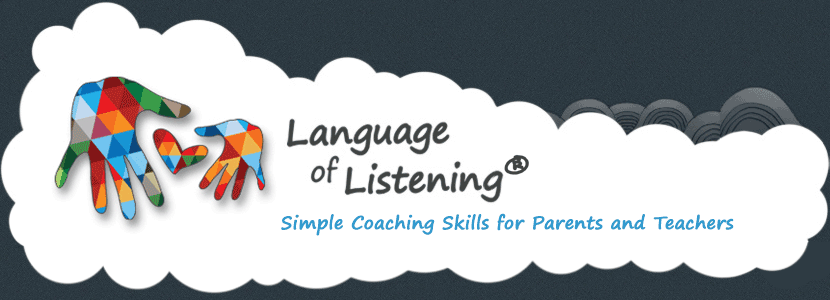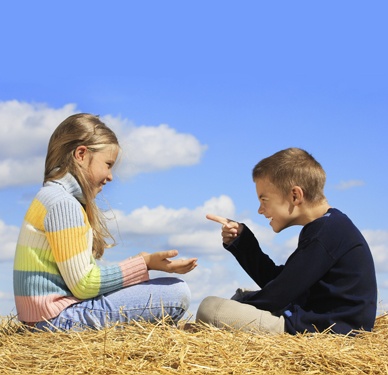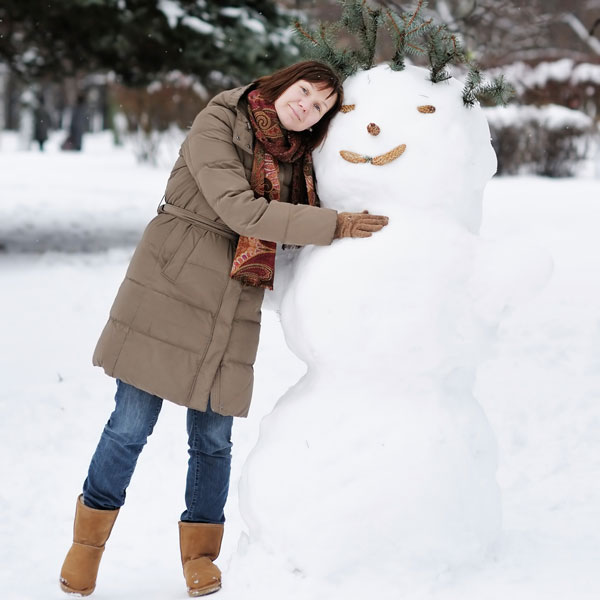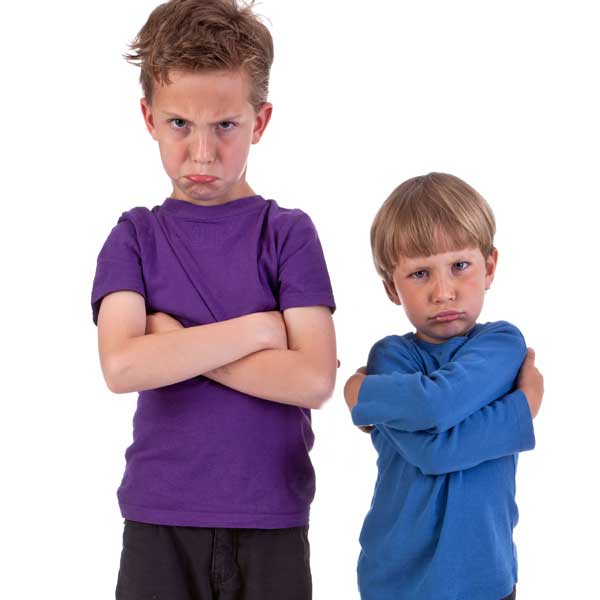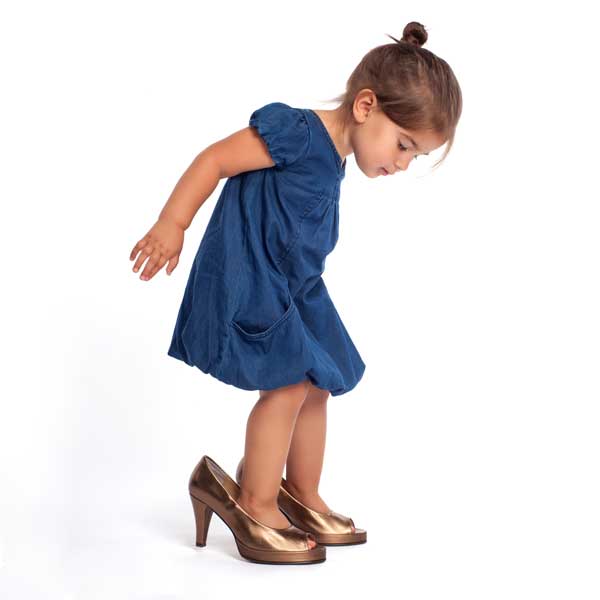When name calling is done to tease or be hurtful, the dynamics are different than with a friend who chooses an unacceptable term of endearment as discussed in What’s in a Name. Suggesting your child say what she wants to be called, which can be helpful in the case of a friend, might only give an adversary more ammunition to do the opposite, especially since adversarial name-calling is usually done by kids who have a high need for power. For them, putting down others is a way to build themselves up.
Unfortunately, too often in our media and entertainment, our society models this tactic, and our kids pick it up. It’s even worse if put-downs are used on kids at home. That sets up a kind of “pecking-order” mentality that extends beyond the family to anyone who appears more vulnerable.
In a middle-school youth group I volunteered for a while back, when one child who was a bit socially awkward started putting down another child who was even more awkward, I took the name-caller aside and listened SAY WHAT YOU SEE style with the intention of understanding why a great kid like him would do that. It came out that he was desperate for respect.
Knowing that, I was able to help him figure out a better way to get it. Once he heard it, he actually preferred the idea of gaining respect by acting as a hero and sticking up for others who were being put down.
Ideally all name-calling children should be listened to and helped to find healthy CAN DOs that meet their needs and build their STRENGTHs. If you cannot reach them, see if someone at their school or in their lives can.
The other side is to help the children being picked on to understand that the name-calling is really not about them; it’s actually the result of the name caller’s problem. This came out very clearly in one conversation I had with a little girl who was in tears because a boy in her class had discounted something she said that was important to her. According to her she was excited about something and the boy turned to her and “meanly” retorted, “So what?!!” then walked off.
As always I started by saying what I saw:
SWYS: “He said, ‘So what,’ and you didn’t like that! You feel upset!”
Child: (Crying harder) “I felt like I didn’t matter.”
SWYS: “Awww. That felt really bad. Sounds like he might have been angry to say that.”
Child: (Nods and sniffs back her tears.) “He’s always angry.”
SWYS: “Oh, so he was probably angry before he even came into the room.”
Child: (Nods again.)
To help her see his perspective I said: “So what do angry boys say?”
Child: (Brightening suddenly) “So what?”
I nodded, and her upset ended.
When she realized that it really was his problem, not something she had done or anything she could control, she recovered completely and skipped off to join her friends.
Bully-proofing with STRENGTHs is another post I wrote that takes a different approach to helping a boy who was teased about not being tough enough: STRENGTH-building
In general, for your child to be able to let “mean” names roll off, he/she needs to understand two things: 1) the name-calling behavior is a way for the other child to feel better about him/herself; it’s not about your child, and 2) it’s not your child’s job to control the behavior of another; your child can only control his/her own. So if cooperation is not possible with another child, yours needs to get support from you, a teacher, or counselor to make healthy choices about how to stay safe and feel good about him/herself.
The final facet of the name-calling issue is approval – the desire to please others and be liked. While a certain degree of wanting to be accepted and belong is normal and builds connection, when feeling good about oneself depends on the opinions of others, it’s no longer healthy. If a child’s behavior has been managed with approval at home and/or at school, this will transfer to their relationships with other children and can increase their susceptibility to peer-pressure as preteens and teens.
So if not being liked is the problem, you might want to have a conversation with the child about that. Often needing to be liked by everyone is coupled with the pressured feeling that he/she has to like everyone, too. Neither one of these works. We all have likes and dislikes. Trying to change or control those or other people’s is fruitless. So as above with name-calling, the steps you want to help your child take are to learn how to let other people’s likes and dislikes roll off, and what to do to stay safe and feel good about him/herself.
Concerning sibling name-calling…


